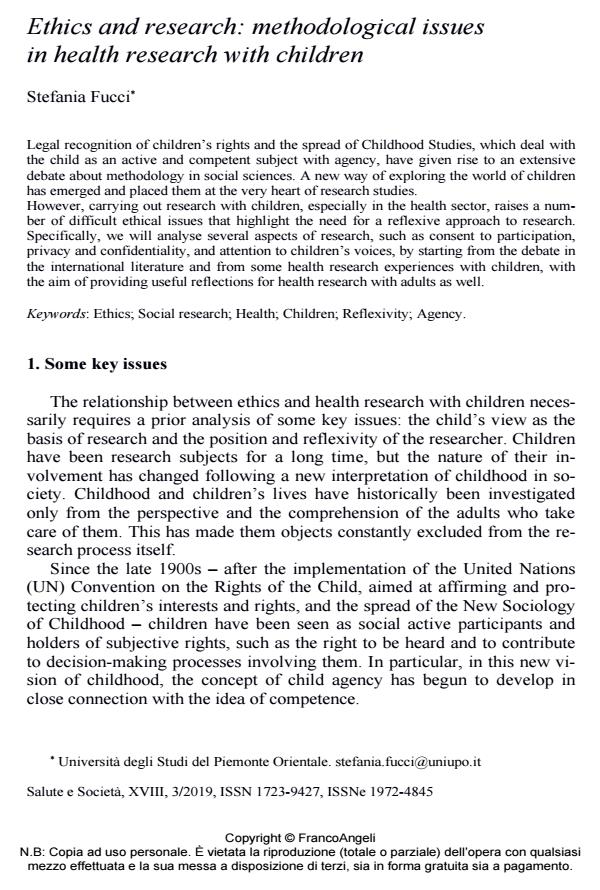Ethics and research: methodological issues in health research with children
Titolo Rivista SALUTE E SOCIETÀ
Autori/Curatori Stefania Fucci
Anno di pubblicazione 2019 Fascicolo 2019/3
Lingua Inglese Numero pagine 10 P. 84-93 Dimensione file 122 KB
DOI 10.3280/SES2019-003008
Il DOI è il codice a barre della proprietà intellettuale: per saperne di più
clicca qui
Qui sotto puoi vedere in anteprima la prima pagina di questo articolo.
Se questo articolo ti interessa, lo puoi acquistare (e scaricare in formato pdf) seguendo le facili indicazioni per acquistare il download credit. Acquista Download Credits per scaricare questo Articolo in formato PDF

FrancoAngeli è membro della Publishers International Linking Association, Inc (PILA), associazione indipendente e non profit per facilitare (attraverso i servizi tecnologici implementati da CrossRef.org) l’accesso degli studiosi ai contenuti digitali nelle pubblicazioni professionali e scientifiche.
Legal recognition of children’s rights and the spread of Childhood Studies, which deal with the child as an active and competent subject with agency, have given rise to an extensive de-bate about methodology in social sciences. A new way of exploring the world of children has emerged and placed them at the very heart of research studies. However, carrying out research with children, especially in the health sector, raises a number of difficult ethical issues that highlight the need for a reflexive approach to research. Specifi-cally, we will analyse several aspects of research, such as consent to participation, privacy and confidentiality, and attention to children’s voices, by starting from the debate in the interna-tional literature and from some health research experiences with children, with the aim of providing useful reflections for health research with adults as well.
Parole chiave:Ethics; Social research; Health; Children; Reflexivity; Agency.
Stefania Fucci, Ethics and research: methodological issues in health research with children in "SALUTE E SOCIETÀ" 3/2019, pp 84-93, DOI: 10.3280/SES2019-003008